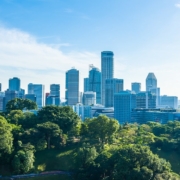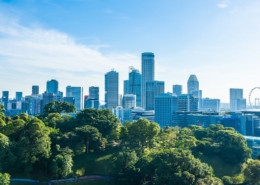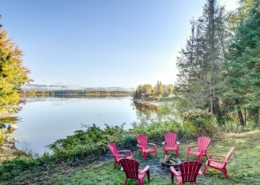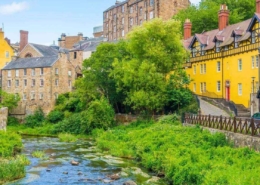Here’s How and Why You Should Boost Your Airbnb Response Rate
- Why is a high Airbnb response rate favourable?
- How to boost your Airbnb response rate?
- Calculating the response time on Airbnb
- Response Rate vs. Acceptance Rate
- How does the response rate determine your place on the Airbnb search results?
- How does a higher response rate benefit you?
- 5 ways to improve Airbnb Response Rate and Response Time
- How will a low response rate affect your Airbnb listing?
When it comes to Airbnb, there’s no ignoring the impact it had on the hospitality industry. The home-sharing giant has changed the way people think about vacations and has left an indelible mark on the hospitality industry. At first, Airbnb was only a place for people to turn to when they wanted to experience a different culture or experience a new part of their city. Over time, the platform has evolved into a place for people to turn to when they need a place to stay, and it’s now become a staple of many households.
Every host on Airbnb has similar goals – get more bookings, which translates to more revenue. In order to beat the competition and get your listing to perform better, there are various parameters that you can work to improve on. One such important parameter that impacts your listing’s performance is the response rate. While hosts are not completely made aware of all the metrics that Airbnb uses to evaluate them, the response rate is a sure thing.
To start off with, let’s look at the difference between the response rate and the response time.
Response rate: As Airbnb wishes to provide a satisfying user experience, it prefers hosts who have higher response rates. This rate is the number of inquiries or reservation requests that a host responds to over a particular time period.
Response time: This is pretty straightforward. It is the average amount of time a host takes to respond to any message in his inbox. While being as quick as you can is best, try to at least maintain a response rate lesser than 24 hours.
Note: Only the first message is considered to calculate the response rate and the response rates in the message chain do not matter. However, maintaining promptly responding to your customers aids you in procuring great reviews.
Why is a high Airbnb response rate favourable?
As an Airbnb host, you want to provide the best experience for your guests and earn the highest return possible for your property. One of the best ways to do this is through a high response rate on your Airbnb listings. A high response rate can help you generate more revenue and increase your conversion rate, which will ultimately translate into more income for you. However, achieving a high response rate can be challenging, especially when you have a lot of listings.
Airbnb responds to the highest volume of guest requests in a given area over a given time period. When it comes to determining your response rate, the platform looks at the number of guests who have requested to book your property over a given time period. The closer your guest response rate is to 100%, the higher your response rate on Airbnb will be. It is an indicator informing Airbnb that you care about its customers. For Airbnb, customer delight is a priority. A high response rate not only leaves a positive impression on the customer but also on the algorithm.
How to boost your Airbnb response rate?
One of the best ways to boost your response rate on Airbnb is to increase the number of reviews you have. As a host, it’s imperative that you have a high-quality, consistent amount of reviews so that when a potential guest does a quick Google search to see if your property is worth visiting, they see that your listing has been reviewed by a large number of guests. This will give you a higher response rate on your Airbnb listings, which in turn will help you generate more revenue and increase your conversion rate.
Another great way to increase your response rate on Airbnb is by offering your guests incentives to leave a review, such as a discount for those who leave a review within a certain amount of time. This will encourage your guests to leave a review when they have something to say, which will increase your response rate.
Calculating the response time on Airbnb
Before boosting your response rate on Airbnb, let’s first understand how the response time is calculated.
The amount of time that passes before a guest decides to leave a review is referred to as a “response time.” The longer a response time is, the lower the response rate on your listing.
Response Rate vs. Acceptance Rate
When it comes to Airbnb, the response rate refers to your responsiveness to any enquires while the acceptance rate refers to how often you accept or decline a booking. And while calculating the acceptance rate, only bookings and not all enquires are taken into account.
An inquiry is when any guest wishes to know more details about your listing. For example, someone might want to know the exact address of your listing. Or they might want to know what kind of pets you allow.
A reservation request is when the guest wishes to book your listing and has approached you to confirm the booking. Ideally, hosts ought to respond within 24 hours to a reservation request.
If you don’t maintain a good response rate and when messages and bookings are not responded to over time, you might get your listing suspended.
How does the response rate determine your place on the Airbnb search results?
As a host, your Airbnb response rate is one of the most important factors when it comes to determining your position in the search results. When it comes to Airbnb listings, the platform looks at the number of guests who have requested to book your property over a given time period. The higher your guest response rate, the higher your position in the search results will be.
If you don’t revert back within 24 hours, it will leave a negative impact on your listing. As Airbnb aims to maximize user satisfaction, they tend to push profiles that respond quickly higher up the search results.
Some tips for the best Airbnb SEO you can finf here.
How does a higher response rate benefit you?
Super Host Status
If you maintain a 90% plus response rate over time, you will be eligible to become a Super Host, if you meet the other requirements as well. This badge would help your listing to attract more guests and over time, you will be able to notice the increase in inquiries and reservation requests. Super hosts get higher ranking and better visibility on Airbnb. There is even a filter on Airbnb then allows the visitors to just search for super host listings. A high response rate will bring you one step closer to this elite status.
Better Revenue
When a potential guest does a quick Google search to see if your property is worth visiting, the higher your position in the results, the better chance you have of being the first result that comes up. This will give you a higher response rate on your Airbnb listings, which in turn will help you generate more revenue and increase your conversion rate, which will ultimately translate into more income for you.
Booking Volume
Of course, higher response rates will also increase the number of people sending in reservation requests. The faster you reply, the more likely you are to convert a reservation request into a booking. If not, then you have sent away potential guests to your competitors. It’s a chain reaction. A high response rate will improve the ranking(visibility), which in turn will attract more guests to the listing.
5 ways to improve Airbnb Response Rate and Response Time
Now that you know how a better response rate brings with it numerous benefits, let’s check out some simple and effective ways to improve it.
Maintain the 24-hour deadline
Yes, we cannot stress this enough. Responding to any message in your inbox, be it an inquiry or a reservation request, within 24 hours will work wonders for your profile. Guests expect prompt replies, and you can’t keep them waiting. Remember, they have to make a decision soon, and your delay will cause them to look at other listings. It doesn’t matter where you are, make sure you always have easy and quick access to your Airbnb inbox. Giving yourself a deadline will eventually help you develop the habit of replying promptly. You know that delay in responding would drive your potential guest to book your competitor’s listing. To avoid this, you must make a routine of checking your inbox at least twice a day- once in the morning and evening.
Use message templates or automated messages
Over time, you will notice that guests often have similar inquiries. For example, asking if smoking and drinking or if pets are allowed are very common inquiries. Or it could be a request for early check-in. You can have a set of message templates that address these common queries and respond quickly. These can come in handy, especially when you have multiple listings.
The next and better step to this would be to use automation tools to respond to messages. Automation would ensure that guests get a response instantly, even if you are not available, and it would provide a quick solution to their queries. Another added advantage is that you won’t have to spend a lot of time going through messages and responding to them. However, do keep a regular check as there might be specific messages beyond the scope of your automated response.
Shift to automation
Automation allows you to quickly scale up your service during high-demand times. You can use it to quickly accept new guests or reserve space in advance. You can also use it to provide better service during off-hours by proactively responding to guest messages and connecting them with your support team. Technology is advancing every day. As an Airbnb entrepreneur, you should make the best of this opportunity. Learn and train your team with the nitty-gritty of such methods. One of the best practices in automation is to prepare a trigger message once you receive any enquiry. You can send a message including the answers to FAQs in a creative manner.
Include all the necessary specifications in the automated answer so that the query gets answered even before you respond manually. For example, start the automated message with ‘Thank you for showing interest in our cosy castle’, then continue by including details such as the policy for extension, price justification, directions to reach, facilities included that were not mentioned in the listing, policies regarding visitors and pets and if the policy is kid-friendly or not. The details differ based on your property and target audience.
Better Communication planning
One of the best ways to improve your response rate on Airbnb is to increase the effectiveness of your guest communication team. The more communication channels you have available to you, the better your response rate will be. For example, if you have a dedicated team for booking inquiries, then you can respond to every booking inquiry within 24 hours. This will help you maintain a much higher response rate than if you only have one channel for booking inquiries. Your in-house team will be able to respond while maintaining your brand’s voice.
You can train them to answer the guests in the best and most polite manner. Preparing guidelines and FAQs for the team will help them send quick messages. You should even provide them with policies in case of any emergency or unfavourable event. For example, if the wait time for key exchange is higher, you can respond to this complaint with a free snacks box to ensure a positive customer experience.
Discover more about Airbnb communication strategies.
Use management Software
Managing Airbnb properties is a handful. You have to supervise the maintenance team, ensure a warm hosting environment and keep your guests happy even before the booking is confirmed. This is just the tip of the iceberg. In case you are managing, multiple properties and handling it all on your own, it is a never-ending struggle for you. Managing everything alone can lead to a low response rate. The most elegant solution is to avail the services of Airbnb management software. Such platforms take the burden of tedious jobs off your shoulders and keep you and your guests happy. Hosty is one of the best management software that assists you in boosting your response rate.
How will a low response rate affect your Airbnb listing?
- A low response rate could hurt your Airbnb listing! Request booking inquiries for your listing to increase your chances of receiving a response and booking reservations. Hosts who provide settings for more automated replies receive 25% more inquiries than those who make no additional settings.
- A response rate below 5% is often interpreted as an indicator that the host is not eager to engage in conversation or to provide better service. This often results in guests being unwilling to book with the host again. As a result, a low response rate can decrease the value of your listing and reduce your income. A little delay in checking your inbox can reduce your revenue.
- Airbnb listings with a low response rate typically rank poorly in search results, which can have a negative impact on the number of impressions they receive — and, as a result, bookings — through organic search. A low rank means less visibility. If the potential guests won’t be able to see your listing, how will they book it? To avoid getting hidden by the Airbnb search engine, you have to maintain a high response rate.
Increasing your response rate is an easy and great way to boost your listing’s performance. Most hosts tend to take it light and end up with a negative impression, so next time there’s a ping in your host inbox, don’t forget to check it right away! The most efficient way is to have an integrated inbox. The Hosty inbox displays the guest details alongside the chat box. It helps you remember the specifications and respond quickly and accurately. Don’t just pick one method to boost your Airbnb response rate. Learn from the super hosts and combine them all. Use trusted management software for templates and textual automation. Manage your communication team with the help of features such as Hosty task management. You can now improve the response rate and increase your number of bookings. Hosty is here to help your business grow. Are you ready?


















